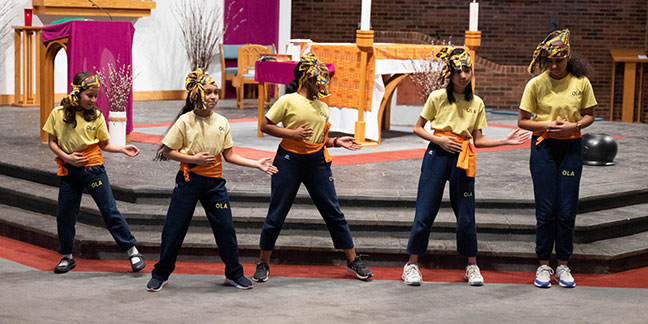 CHARLOTTE — Our Lady of the Assumption School held a “Harambee" Mass as part of the school’s cultural month.
CHARLOTTE — Our Lady of the Assumption School held a “Harambee" Mass as part of the school’s cultural month.
The “Harambee” Mass is inspired by the Kenyan tradition of community self-help efforts. “Harambee” means “all pull together” in Swahili.
During the “Harambee Mass,” students evoked some of the traditions American slaves practiced.
Fearing punishment that could lead to death, the slaves would wait to the darkest part of night and sneak into the woods for service.
They brought brooms to sweep the area for the service and a large pot would be used as the altar.
— Photos by Troy Hull
CHARLOTTE — Our Lady of Assumption School held their annual “Lunch with a Loved One" Feb. 14.
Our Lady of the Assumption Church’s Knights of Columbus sponsored the event. The Knights prepared hot dogs for the students to share with their guest in the school’s cafeteria. The Pre-K students enjoyed lunch in their classrooms.
Afterwards they had a Valentine party with their loved one and gave them Valentine cards they made during class. This was the first time “Lunch with a Loved One” was held on Valentine’s Day.
— Photos by Troy Hull


































